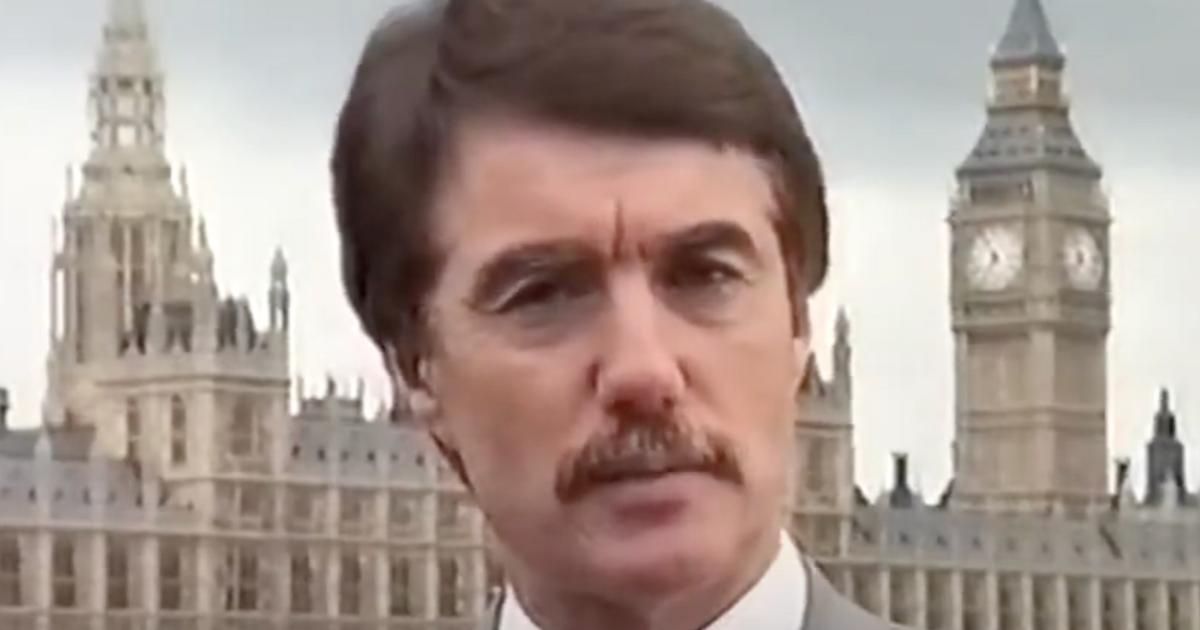When William Geoffrey Clements, 76, a former politician and University of Sussex graduate, died in Worthing hospital in May 2024, he had not made a will.
This left Finders International, a professional probate genealogy firm, the task of finding all relatives entitled to inherit his estate.
This search revealed the interesting life of Geoffrey Clements, a Horsham native, and the former leader of the UK’s Natural Law Party (NLP).
Geoffrey in later years.(Image: Finders International)
The party’s principles were based on harnessing the universe’s natural laws, through practices such as yogic flying (bouncing cross-legged across mats) and transcendental meditation.
In the 1997 general election, the NLP fielded candidates for 193 seats, with Beatles’ member George Harrison even holding a fundraising concert at the Royal Albert Hall for the party.
Explaining the party’s unorthodox take on politics, Geoffrey once said in a TV broadcast: “When groups of people practise yogic flying it creates a powerful effect of coherence that radiates to the environment, decreasing stress and increasing integration and positivity in the area.”
Finders quickly established that Geoffrey was an only child, and despite being married four times, he didn’t have any children of his own.
In these circumstances, the research moved to focus on relatives of his parents.
That’s when a first cousin, also from Sussex, was contacted by Finders International.
Her father and Geoffrey’s mother were siblings.
She hadn’t seen Geoffrey for many years but they had kept in regular telephone contact.
She said: “Geoffrey was a gentleman and a very private person. In all our communications, he never mentioned he was in poor health. I was shocked to hear he had died and even more surprised that he hadn’t made a will.
Geoffrey Clements’ house that was formerly his parents’ house too.(Image: Finders International)
“However, I feel Geoffrey thought he might have had more time left. His mother lived until she was nearly 100, so perhaps he felt he was due the same long innings.”
Clements, who was also a graduate of the University of Sussex, studied for his bachelor’s and doctoral degrees in physics between 1968 and 1974.
While there, he trained as a teacher of Maharishi Mahesh Yogi’s Science of Creative Intelligence and Transcendental Meditation.
He was the NLP candidate at the 1992 and 1997 general elections and headed the party’s London list at the 1999 Euro elections.
Simonne Lewellyn, CEO of Finders International, said: “We often uncover very interesting lives during the course of our research – and Geoffrey’s life is another example of that.
“While we have no idea what his final wishes would have been, we are pleased that his estate has been distributed among the rightful heirs. We wish them good fortune with their inheritance.”
Geoffrey spent many decades travelling the world and six months a year in India, but he settled back in Barns Green, Horsham, in his parent’s house.
He was very involved and fondly remembered by the local Barns Green Cricket Club, where he once organised a cricket tour to India.
He left an estate valued at £450,000. In total Finders International found all 15 relatives entitled to share of his estate.
Simonne Llewellyn of Finders International.(Image: Finders International)
Simonne Llewelyn, Finders International explained: “We find all the family of the deceased person and report our findings to the solicitor who has taken responsibility for the estate.
“If someone dies intestate (no will), there are automatic rules for who should inherit. The order of inheritance starts with spouse, children, parents, brothers and sisters, nephews and nieces, then half-brothers and sisters. Next it is grandparents, before other branches of a family tree start to be explored.
“After 30 years, an unclaimed estate is deemed to be ‘bona vacantia’ – which is a Latin term for ‘ownerless goods’. At this point the government gets keep the estate.
“Crucially it’s important to ensure that everyone entitled to a share in an unclaimed estate is found, otherwise there could be problems in the future.”

